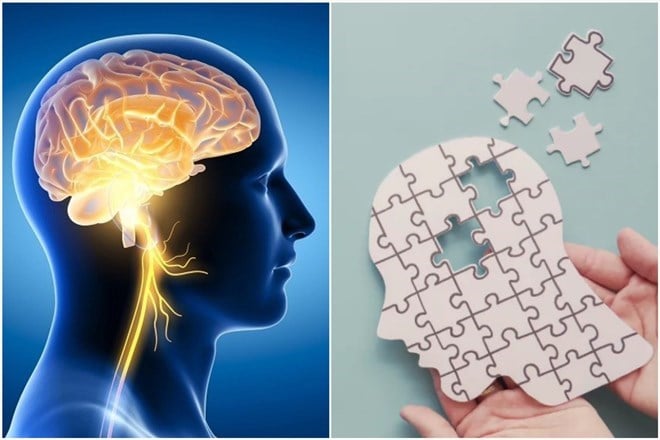
A night without sleep ages the brain
A study published by the Society for Neuroscience (USA) in the Journal of Neuroscience - showed that, in 134 people aged 19 - 39 participating in the study, scientists used specialized machines to estimate "brain age" through magnetic resonance imaging (MRI) scans.
The scanners will scan the brains of sleep-deprived people, then compare them with the same people's brains after a full night's sleep.
Participants were analyzed for MRI data from different sleep conditions, including total insomnia (being awake for more than 24 hours), partial sleep deprivation (sleeping for 3 hours/night), and chronic sleep deprivation (sleeping for 5 hours/night, lasting for 5 nights). The study also included a control group that slept 8 hours per night.
Each group had at least one night of “baseline sleep,” in which they spent eight hours in bed. All participants underwent MRI scans after each sleep session, to compare what their brains looked like before and after being sleep-deprived or getting eight hours of sleep.
The authors found that total sleep loss increased brain age by one to two years.
“Interestingly, after one night of sleep deprivation, the brain age of those who had lost sleep changed and was no different from the baseline,” said Eva Maria Elmenhorst, from RWTH Aachen University in Germany, one of the researchers who conducted the study.
Although research suggests that sleepless nights can affect the brain in the short term, more needs to be learned about the long-term effects of chronic sleep loss.
Sleep affects thinking and memory
Dr Viswesvaran Balasubramanian, Consultant in Interventional Pulmonology and Sleep Medicine at Yashoda Hospital Hyderabad (India) emphasized that sleep plays an important role in the ability to think and remember effectively. Insomnia can affect many different functions of the body.
“A unique feature of the brain is neuroplasticity, which is the ability of neurons in the brain to reorganize themselves in response to internal and external stimuli,” says Dr. Balasubramanian. “One of the most important stimuli that can alter neuroplasticity is sleep.”
Sleep helps restore the functioning of most of the body's endocrine systems and organs, he added. In addition, sleep also plays an important role in the efficient reorganization of synapses, which play a crucial role in memory and learning.
Thus, any disruption of adequate restorative sleep can profoundly affect this aspect of the brain and may lead to structural and functional changes in neural circuits.
Current research is attempting to understand structural changes in the brain using MRI and specialized algorithms. Although this is a small study, it still provides evidence that sleep plays a major role in effective thinking and memory.
Source: https://laodong.vn/suc-khoe/mot-dem-khong-ngu-co-the-khien-nao-ban-gia-di-nhieu-nam-1373899.ldo






![[Photo] Urgently help people soon have a place to live and stabilize their lives](/_next/image?url=https%3A%2F%2Fvphoto.vietnam.vn%2Fthumb%2F1200x675%2Fvietnam%2Fresource%2FIMAGE%2F2025%2F12%2F09%2F1765248230297_c-jpg.webp&w=3840&q=75)



































































![[Photo] General Secretary To Lam works with the Standing Committees of the 14th Party Congress Subcommittees](https://vphoto.vietnam.vn/thumb/402x226/vietnam/resource/IMAGE/2025/12/09/1765265023554_image.jpeg)

































Comment (0)